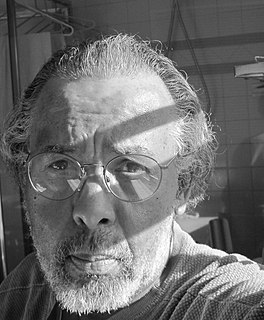A Quote by Percy Bysshe Shelley
The great secret of morals is love; or a going out of our nature, and an identification of ourselves with the beautiful which exists in thought, action, or person, not our own. A man, to be greatly good, must imagine intensely and comprehensively; he must put himself in the place of another and of many others; the pains and pleasure of his species must become his own. The great instrument of moral good is the imagination.
Related Quotes
Man—every man—is an end in himself, not a means to the ends of others; he must live for his own sake, neither sacrificing himself to others nor sacrificing others to himself; he must work for his rational self-interest, with the achievement of his own happiness as the highest moral purpose of his life.
With only one life to live we can't afford to live it only for itself. Somehow we must each for himself, find the way in which we can make our individual lives fit into the pattern of all the lives which surround it. We must establish our own relationships to the whole. And each must do it in his own way, using his own talents, relying on his own integrity and strength, climbing his own road to his own summit.
If an American is to amount to anything he must rely upon himself, and not upon the State; he must take pride in his own work, instead of sitting idle to envy the luck of others. He must face life with resolute courage, win victory if he can, and accept defeat if he must, without seeking to place on his fellow man a responsibility which is not theirs.
Most people think of love as some sort of power outside of themselves that will "take them away from all of this." Sadly, this is not the case. Love exists only within our own hearts, and to have happy relationships we must first become truly loving people. And as we fill our hearts with love by expressing love for others in thought, word, and deed ("acting as if" until we make it happen if necessary), that love can heal our own lives, help to solve our problems, and enable us to feel good about ourselves.
We can not communicate with the Lord if we do not communicate with each other. If we want to present ourselves to him, we must take a step towards meeting one another. To do this we must learn the great lesson of forgiveness: we must not let the gnawings of resentment work in our soul but must open our hearts to the magnanimity of listening to others, open our hearts to understanding them, eventually to accepting their apologies, to generously offering our own.
In the interest of the ethical and moral health of the country, the writer, the poet, the artist, the thinker, must hold a mirror up his or her country and say, look, this is who we are, this is how we live, this is our past, we must own it, forgive ourselves, transcend our transgressions, and become better people. Turning the tide must be a continuous effort.
A perfect historian must possess an imagination sufficiently powerful to make his narrative affecting and picturesque; yet he must control it so absolutely as to content himself with the materials which he finds, and to refrain from supplying deficiencies by additions of his own. He must be a profound and ingenious reasoner; yet he must possess sufficient self-command to abstain from casting his facts in the mould of his hypothesis.
The psychological impotence of our enraged generation must be traced to the overwhelming accusation of insincerity which every man and woman has to confront, in the depths of his own soul, when he seeks to love merely for his own pleasure.And yet the men of our time do not love with enough courage to risk even discomfort or inconvenience.
A man must first care for his own household before he can be of use to the state. But no matter how well he cares for his household, he is not a good citizen unless he also takes thought of the state. In the same way, a great nation must think of its own internal affairs; and yet it cannot substantiate its claim to be a great nation unless it also thinks of its position in the world at large.




































